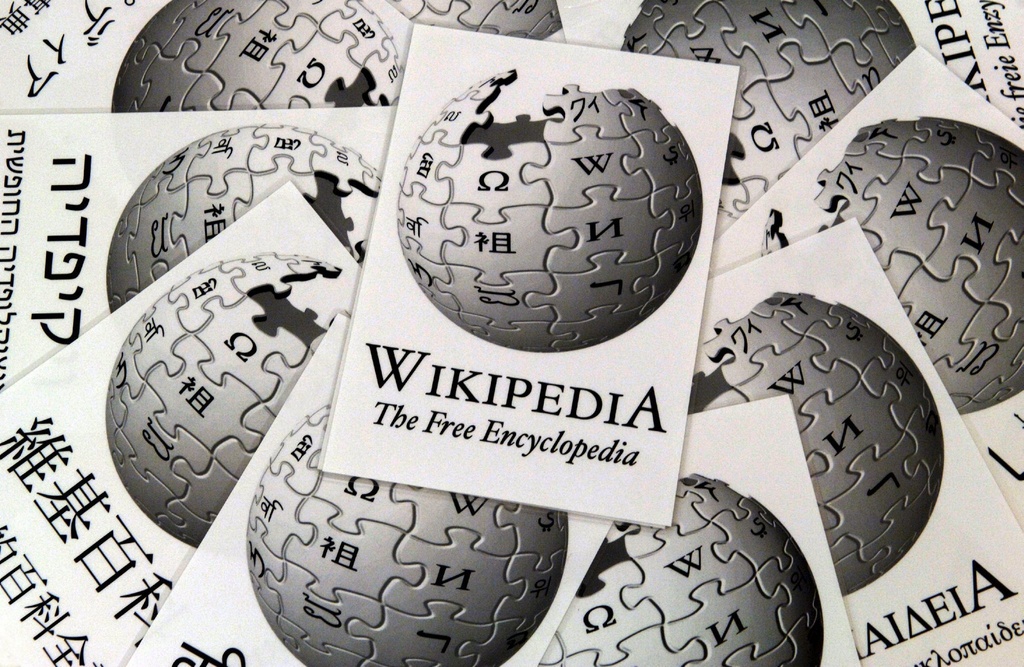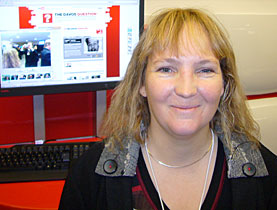Wikipedia grows up

The online encyclopaedia Wikipedia, which is both popular and controversial in Switzerland and elsewhere, is celebrating its tenth birthday.
Its founder, Jimmy Wales, is due in Switzerland on January 26 to receive the prestigious Gottlieb Duttweiler Prize, worth SFr100,000 ($103,000).
Wikipedia has come a long way since its launch on January 15, 2001 – it is now available in more than 270 languages and has more than 17 million volunteer-authored articles. The encyclopaedia is one of the ten most visited websites worldwide.
Wales will be in Rüschlikon near Zurich to receive the Gottlieb Duttweiler Prize – given to those deemed to have made an “outstanding contribution” to the wider community – for having “revolutionised the access to knowledge as man’s most important resource and thus contributed to democratising knowledge”.
However, it was not too long ago that Wikipedia was under fire. In 2005, the site was threatened with a Wikipedia class action law suit from people who felt information had been posted about them that was wrong or defamatory.
Success story
“Ten years after its birth Wikipedia can be considered a success because hundreds and thousands of people have worked together to build a huge source of knowledge that’s completely for free, even if it’s not perfect,” said Olivier Glassey, a Lausanne University expert on new media.
“At the moment there are not many examples of this kind of such importance.”
Wikipedia has also been a real learning laboratory for the next generation Web 2.0 – even coming before the social networks, added Glassey.
“Not only has Wikipedia allowed access to information, but it has also allowed people to learn how to create information using the internet as an instrument.”
But there have been concerns over the quality of its content. “Wikipedia has provoked many useful discussions about objectivity and the truth,” Glassey said.
“The encyclopaedia is therefore a perfect example of what the internet has become: there are huge amounts of information on the network which we use daily, even if we can’t be totally sure about their reliability.”
Tightening up
At first it was thought that a large number of contributors would ensure better quality. But since then doubts have been raised and instruments have been developed to allow the Wikipedia community to avoid errors, the expert said.
For example, it is now harder for other users to modify starred featured articles, which have been peer reviewed. They can have the star removed if they are not updated. Articles that are incomplete, translated from other articles or subject to debate are clearly indicated.
Frédéric Schütz, the volunteer spokesman for Wikimedia Switzerland and Wikipedia expert user, says that much has been done to quickly remove insults and to raise awareness among users, especially when it comes to editing biographical pages of living persons and indicating sources.
“It’s an application of the ‘broken windows theory’ dear to the former mayor of New York Rudolph Giuliani: if a building looks like it’s been abandoned, people will damage it even more,” Schütz said.
According to Glassey, Wikipedia was one of the fastest new media. “Now, however, it’s all about better time management: when an article or the subject is controversial, the updating can be temporarily halted.”
Schütz points out that, “most of the current articles allow for a quick updating of what already exists without needing to create a new article when a person or event is thrust into the limelight”.
Next generation
Of late there has been a stagnation in the number of contributors and Wikipedia needs to encourage a new generation of writers, says Glassey.
“It’s important for Wikipedia to be able to recruit users from all cultural backgrounds who can bring different approaches when analysing historical events – so you can create a sort of neutrality based on diversity.”
But the sociologist remains cautious about collaborations with influential institutions or people, such as between Wikimedia France and the National Library of France.
“It’s certainly an interesting idea but Wikipedia should above all try to stay accessible to all,” he said.
“If too many academics got involved this might put off core contributors, leading to a loss of strength for the encyclopaedia. The Wikipedia culture, which is not a meeting place for experts, is not a university one and is not trying to be one.”
Schütz concludes: “we have never claimed to be exact, but simply to be useful”.
Wikipedia (wiki derives from the Hawaiian term for fast) was started as a successor to Nupedia, which was also a web-based encyclopaedia with peer-reviewed contributions from experts.
It was founded in 2000 in the United States by the company Bomis, which owned a search portal of the same name. The main figures were Jimmy Wales, the CEO and Larry Sanger, the editor-in-chief.
Wikipedia went online on January 15, 2001, having started as a side project, and in 2003 the non-profit foundation Wikimedia was founded which operates wiki projects, including Wikipedia.
Wikimedia is funded through user donations and has a reserve of $13 million (SFr12.4 million). The 2009-2010 campaign collected $8 million or around 240,000 donations. The aim for 2010-2011 is to double this.
The Swiss section of Wikimedia, founded in 2006, is multilingual: its management is made up of three people from the French-speaking part, two from the German-speaking part and one Italian speaker.
The association assigns 1-2% of its budget for the promotion of Wikimedia in Africa and it’s also involved in several projects to raise awareness of Wikipedia, and the internet, among those aged over 50.
There are no figures relative to how many Swiss contributors there are.
(Translated from Italian by Isobel Leybold-Johnson)

In compliance with the JTI standards
More: SWI swissinfo.ch certified by the Journalism Trust Initiative



You can find an overview of ongoing debates with our journalists here. Please join us!
If you want to start a conversation about a topic raised in this article or want to report factual errors, email us at english@swissinfo.ch.